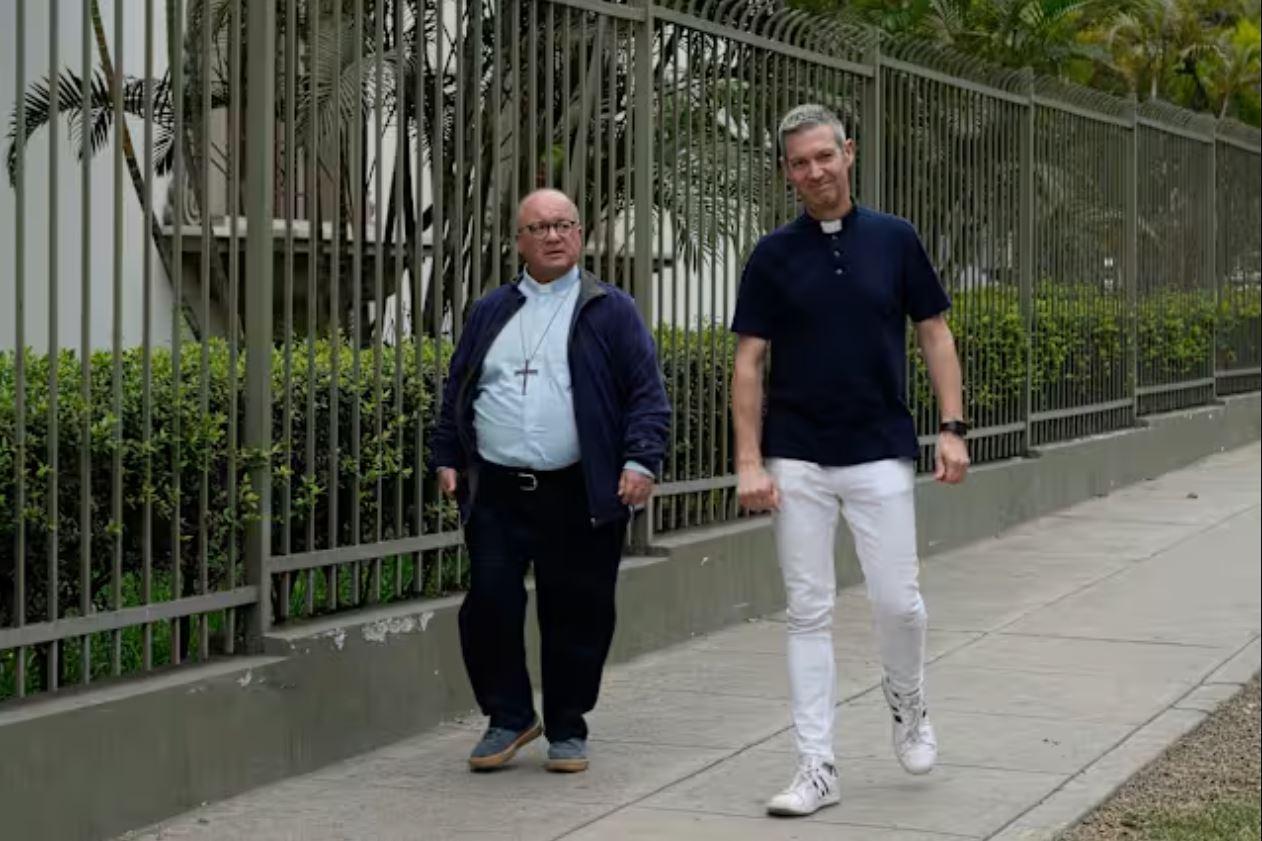ROME – A year and a half after two private citizens filed a criminal complaint against a Vatican official investigating a scandal-plagued lay group in Peru, prosecutors for the second time are poised to drop the complaint on grounds of diplomatic immunity.
In July 2023, Pope Francis tapped Maltese Archbishop Charles Scicluna and Spanish Monsignor Jordi Bertomeu with leading a Special Mission investigating allegations of sexual abuse and financial corruption within the Peru-based Sodalitium Christianae Vitae (SCV).
The pair, both officials of the Vatican’s Dicastery for the Doctrine of the Faith, are Pope Francis’s most trusted investigators, and have held diplomatic passports for the Holy See since 2018, when the pope sent them on a similar special mission to investigate clerical abuse scandals in Chile.
After conducting initial interviews at the Vatican’s nunciature in Lima at the beginning of their inquiry, two individuals who gave testimony filed a criminal complaint against Bertomeu “and those who are responsible” for an alleged breach of professional secrecy.
A decree dated Jan. 13, sent to the Apostolic Nunciature in Lima and which repeatedly notes that the Special Mission investigating the SCV was sent at the pope’s personal order and frequently cites Bertomeu’s status as a papal official with diplomatic standing, recommends the definitive archival of the complaint.
The decree, which Crux has seen, states that, “there is no reason for formalize or continue the preliminary investigation against Rev. Jordi Bertomeu Farnos and those who are responsible, for the alleged commission of the crime against freedom – violation of the professional secret.”
It ordered “the definitive archiving of this complaint, once this provision has been approved or confirmed.”
The decision, according to the decree, was made considering that the alleged crime took place in Bertomeu’s capacity as an official envoy traveling with a diplomatic passport, conducting a papally mandated investigation into the SCV.
It recognized that the apostolic nunciature in Lima, where Scicluna and Bertomeu conducted their interviews, “is equivalent to an embassy; that is, it is a first-class diplomatic mission,” and that Bertomeu “formed part of the Special Vatican Mission.”
The decree was signed by Sandro Ruiz Herrera, a provincial prosecutor who initially accepted their complaint but last October recused himself and referred the case to the Peruvian Attorney General’s office on the grounds that Bertomeu, as a Vatican official and an envoy of the pope, holds diplomatic privileges.
A preliminary investigation was then opened after Caccia and Blanco appealed the decision, stating that Bertomeu was not a nuncio and was simply a monsignor without the rank of a bishop, but upon further examination, it appears that Herrera reached the same conclusion.
The individuals who filed the complaint are Peruvian laywoman Giuliana Caccia Arana and Peruvian layman Sebastian Blanco, two individuals with close ties to the SCV who asked to be interviewed by Scicluna and Bertomeu as victims.
They were granted audiences by the nunciature, but ultimately only met with Bertomeu, as Scicluna had missed his flight.
When details of their conversation became public, they filed a criminal complaint against Bertomeu “and those who are responsible,” presuming he must have disclosed the information.
However, participants in the process have said that the identities of Caccia and Blanco were discovered by photographers outside the nunciature, and that the contents of their statements, but not their names, were relayed to other witnesses in the investigation by Scicluna and Bertomeu in order to assess their veracity. As a result, these participants say, the information in question did not have to come from Bertomeu.
The Jan. 13 decree acknowledges this version of events, stating that Bertomeu and Scicluna sought to verify Caccia and Blanco’s testimonies by contrasting them with other witnesses, and that the pair were later identified by journalists waiting outside the Vatican nunciature.
The recommendation to definitively archive the case means it will likely soon be closed, however, Caccia and Blanco have the right to what is called a recurso de queja, which is essentially an extraordinary form of appeal which allows the aggrieved party to challenge the denial of a previous appeal or the refusal of its processing by a judge or court.
If Caccia and Blanco proceed with the recurso de queja, the case could still linger on for a time, but would ultimately likely reach the same conclusion.
Follow Elise Ann Allen on X: @eliseannallen












